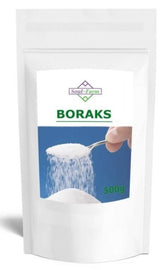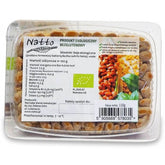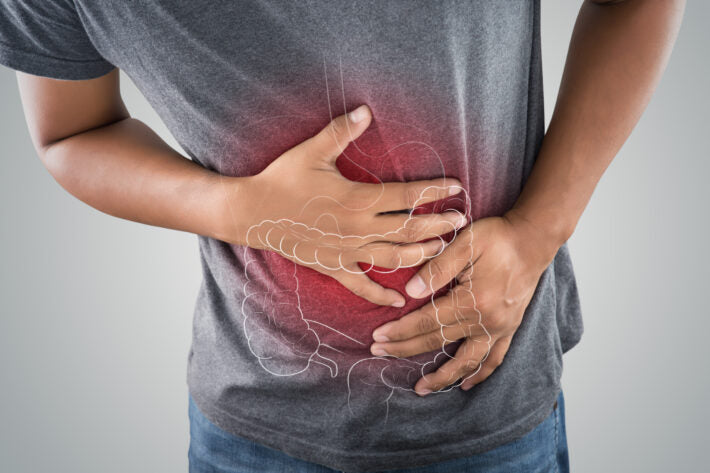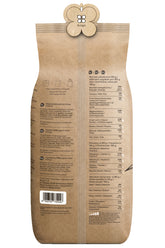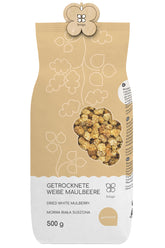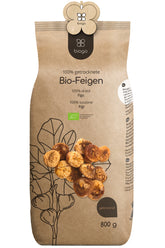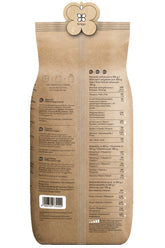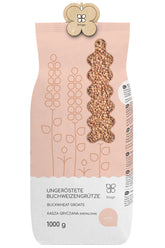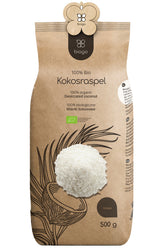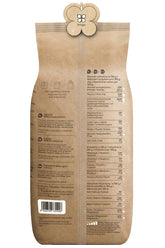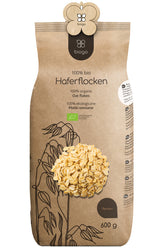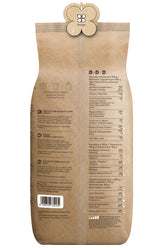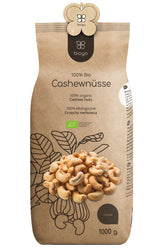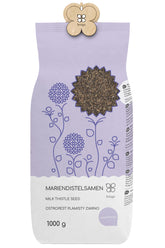Diet recommendations for constipation
CONTENTS:
- Classification of constipation by cause:
- Dietary treatment
- Principles of the anti-constipation diet – rich residual diet:
- Additional aids in the diet against constipation
- What other than a diet to combat constipation?
- The relationship between the occurrence of constipation and the psyche
- The Bristol Stool Scale
- Summary
Constipation is one of the most common, yet rarely reported, gastrointestinal disorders. The causes of these disorders can be many, so the solutions to this problem also vary, but start from the beginning.
By definition, constipation is a symptom of infrequent bowel movements (less than 2 per week) or the presence of hard, heavy stools accompanied by a feeling of incomplete bowel movement. An additional criterion is a change in bowel rhythm, for example, from 3 per day to 1-2 every 3 days. For a complete objective assessment of whether constipation is present, attention must be paid to the absence of large amounts of mucus or blood during bowel movements (blood in the stool takes a very long time and is dark/black in color). If these additional symptoms are present, medical advice is required.
Constipation can be accompanied by bloating, discomfort and abdominal pain.
The normal intestinal transit time is about 24-48 hours, but in people with chronic constipation this time can be extended to up to 120 hours.
Classification of constipation by cause:
- Idiopathic/primary constipation – not caused by disease, more than 90% of constipation occurs:
- functional – caused by disorders of gastrointestinal motility, mainly caused by poor diet, lack of exercise and lack of physical activity
- with slow passage / atonic constipation – too slow movement of food through the digestive tract, the stool is hard and has the shape of dry rolls
- Dyssynergic defecation/spastic constipation – excessive or, conversely, lack of contraction of the muscles that contribute to defecation, sometimes leading to inflammation. Stool takes the form of small lumps or a thin pencil.
- Constipation, especially due to a disease of the colon, irritable bowel syndrome (constipation form), diverticulosis, cancer and other cancers, hernia, volvulus caused by anal stenosis as a result of inflammation (Crochna's disease, ischemic inflammation, tuberculosis),
- Anal stenosis, hemorrhoids, cancer, rectal diverticulum and others.
- Constipation caused by medication: anesthetics and analgesics, anticholinergics, antidepressants, anticonvulsants, antiparkinsonian drugs, calcium or aluminum-containing drugs, iron supplements, opioids, antihypertensive drugs (e.g. diuretics, β-blockers).
- Constipation due to mental illness: depression, anorexia nervosa,
- and other.
Dietary treatment
A diet for constipation is the basis of treatment, regardless of the type of constipation. In idiopathic constipation, i.e., not caused by a disease, only a diet can be used to combat constipation. In other cases, it is necessary to treat the underlying cause—the disease—and discontinue medication (if possible) to eliminate constipation.
Principles of the anti-constipation diet – rich residual diet:
- The key is increasing the amount of fiber in your diet. Increasing the amount of fiber in your diet isn't just about introducing or replacing wheat products (made with white flour) with whole grain products, but also about increasing the amount of vegetables and fruit in your diet. They contain extremely beneficial soluble fiber. This fiber also has a positive effect on the intestinal flora—it acts as a prebiotic ("food for bacteria"). Not all vegetables and fruits contain the same amount of fiber.
- Another extremely important element of a residue-rich diet is increasing fluid intake. The average stool is 75% water. Stool stagnation in the intestines due to constipation reduces this amount to about 60%. Drinking sufficient water throughout the day prevents constipation and supports the beneficial effects of fiber.
- Another indication is to reduce the amount of fats and carbohydrates in the diet.
- To prevent constipation, you should be careful not to overeat and eat regular meals. Eating too large portions and eating too quickly can cause your body to "not be able to keep up with the processing and absorption of the food consumed."
- The anti-constipation diet should avoid products with constipating properties: ripe bananas, cocoa, blueberries (especially black), black tea (especially strong brewed), wheat bread, white rice, boiled carrots, wine (especially dry red), sweet snacks and some types of fast food.
- Certain foods, including legumes, cause gas and can cause bloating. These effects are not beneficial for people with constipation and should therefore be avoided.
In cases of spastic constipation, i.e., constipation caused by abnormal contraction of the muscles that move feces, the above-mentioned indications do not apply. In this form of constipation, a bland diet is usually recommended to facilitate bowel passage and reduce the resulting inflammation.
Additional aids in the diet against constipation
In addition to the guidelines above, it's worth trying some other "tricks" to help you manage a high-residue diet. They're not complicated and can be especially helpful for long-term constipation. These include:
- Drink a glass of water immediately after getting up
- Drink plum compote daily or eat 2-4 plums with each meal
- Drink a glass of kefir , buttermilk, sour milk or yogurt every day
- Eating an extra portion of seeds alone or as an addition to dishes, such as flax seeds, pumpkin seeds, sunflower seeds, provides more fiber.
- Introduction to the diet of pickled products that have a probiotic effect on the digestive system, such as sauerkraut, pickled cucumbers, etc.
What other than a diet to combat constipation?
In addition to diet, lifestyle changes are helpful in treating constipation. This primarily involves physical activity. In fact, walking at a steady, brisk pace for at least 30 minutes is sufficient to begin with.
In addition, when dietary and lifestyle changes alone don't help, so-called bowel movement exercises are used to treat constipation. These include regular, calm bowel movements or attempts to have a bowel movement for approximately 15-20 minutes without a strong urge, for example, in the morning after breakfast.
Other methods that help with constipation include hot compresses and massages. Brushing the intestinal area and the area of stool impaction.
If diet, lifestyle changes, and bowel movement training fail to produce results or the effects are measurable, you should consult a doctor or nutritionist. In such cases, the appropriateness of the changes implemented or the introduction of pharmacological treatment may need to be reviewed. Medications that reduce constipation include drugs that increase stool mass, osmotic laxatives, stool softeners (paraffin oil, castor oil) , and irritants (glycosides, anthraquinones). Chronic medications should never be discontinued without medical supervision. Pharmacological treatment is only used when all non-pharmacological methods are ineffective. It should also be emphasized that these medications do not treat the causes of constipation, but merely relieve its symptoms.
The relationship between the occurrence of constipation and the psyche
Psychological conditions that influence the occurrence of constipation include stress and haste, or various types of mental illness. Therefore, it is often necessary to work with a psychologist. You can set your own meal times and eat at a leisurely pace. It is also worth scheduling time each day for rest and relaxation. Sleep is also important; the correct sleep duration is approximately 6-8 hours.
The Bristol Stool Scale
Doctors sometimes use the Bristol Stool Scale when assessing stool. It is used to classify stools into seven types, ranging from constipation to normal stools to diarrhea. This scale is extremely descriptive and widely available, so we can use it on our own.
Summary
The basis of constipation treatment is a high-fiber diet and lifestyle changes. Other methods include bowel movement training. In critical cases, medication may be necessary. However, it is always worthwhile to determine the cause of constipation, as it may be due to an existing illness or medication. In such cases, it is necessary to rule out the underlying cause. For this, you should consult your doctor.
THE PUBLISHER'S CHOICE
Almonds 1 kg BIOGO
- €11,69
€13,75- €11,69
- Unit price
- / per
Walnuts 800 g BIOGO
- €8,65
€10,18- €8,65
- Unit price
- / per
Dried organic mango 400 g BIOGO
- €10,99
- €10,99
- Unit price
- / per
Dried White Mulberries 500 g ORGANIC
- €5,84
€6,87- €5,84
- Unit price
- / per
Dried organic figs 800 g BIOGO
- €30,12
- €30,12
- Unit price
- / per
Unpeeled buckwheat groats 1 kg BIOGO
- €2,81
€3,31- €2,81
- Unit price
- / per
Organic coconut flakes 500 g BIOGO
- €10,07
- €10,07
- Unit price
- / per
Organic oat flakes 600 g BIOGO
- €3,77
- €3,77
- Unit price
- / per
Organic cashew nuts 1 kg BIOGO
- €19,99
- €19,99
- Unit price
- / per
Milk thistle seeds 1 kg BIOGO
- €3,99
- €3,99
- Unit price
- / per






